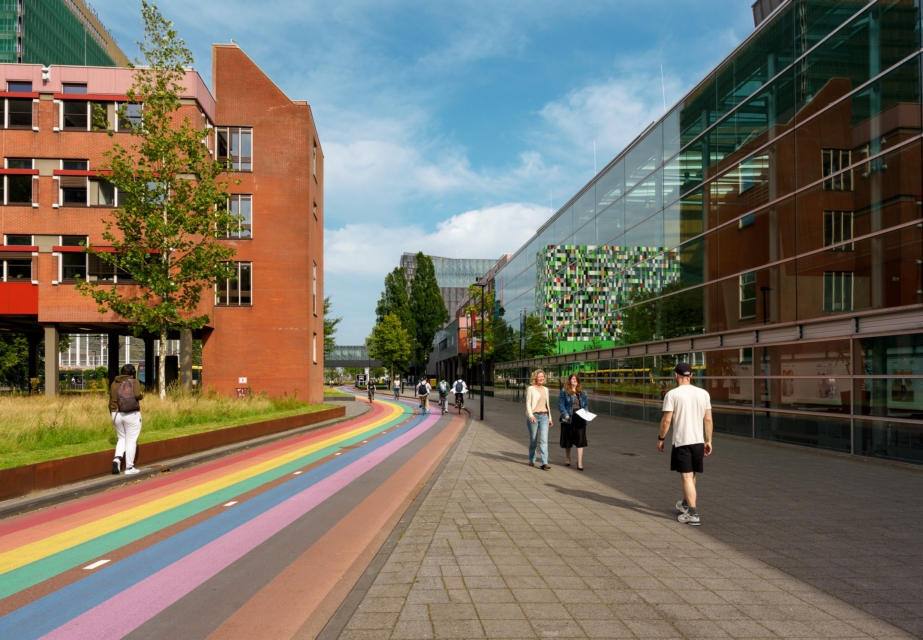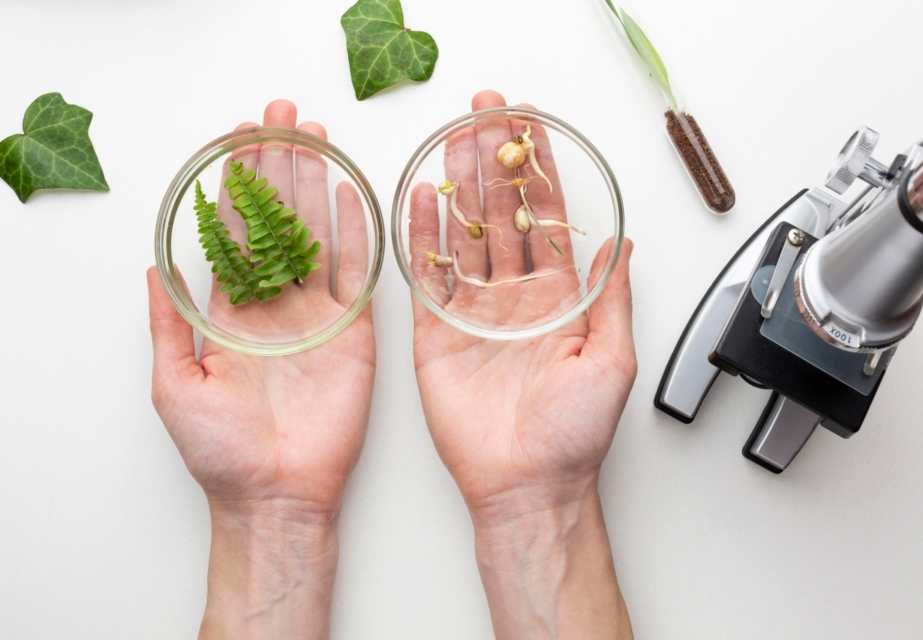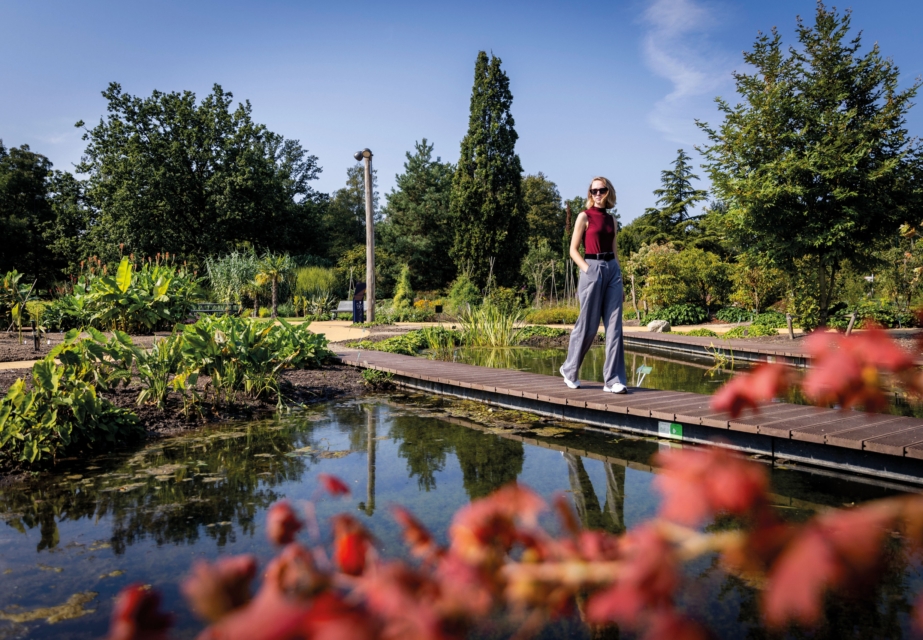Sustainability
Sustainability at Utrecht Science Park is diverse and multi-coloured. It is about solar and wind energy, research into the food of the future, clean fuel, water from the tap, in the deltas and about the latest generation of catalysts. Sustainability is about close to home and about very far away. About floods and about drought. About meat and about vegan. Sustainability is being worked on in start-ups, company restaurants, laboratories and research centres. But also in the living labs at Utrecht Science Park and outdoor spaces. The campus is a living testing ground. There is fundamental, translational and applied research. Mostly interdisciplinary and in collaboration with public and/or private parties.

Research areas
The current climate change has major consequences for people and the environment worldwide. How can we deal with this complex issue, the greatest challenge for humanity? Researchers, employees and students from Utrecht University, HU University of Applied Sciences Utrecht, UMC Utrecht and research institutes such as TNO and the Westerdijk Institute conduct research into many sustainability themes. They study the climate, the greenhouse effect, climate change and the role of humans. In addition, there are numerous companies and organisations at Utrecht Science Park where research is applied and where ideas in the fields of smarter energy consumption, waste separation and food production are brought to life. Important research areas include future foods, energy transition and water, climate & future deltas.
Strategic theme Utrecht University: Pathways to Sustainability
Sustainability research and education at Utrecht University are exceptionally strong and cover many different fields. Having the unique combination of top-notch fundamental natural science research, modelling, and scholarship in innovation, transition, governance and finance, Utrecht University, as a broad research university, is at the forefront of innovation in sustainability research and education. In the university-wide strategic theme “Pathways to Sustainability“, researchers with different expertise find each other around socially relevant and recognizable sustainability issues in Thematic Networks. It is precisely through this cross-pollination and bringing together of expertise that we find solutions and answers.

HU University of Applied Sciences Utrecht: Sustainable Together
HU University of Applied Sciences Utrecht wants sustainable solutions to contribute to an inclusive, just and safe society. That is why we train our students to become change agents who can drive sustainable innovations. The Hogeschool Utrecht has a number of spearheads:
- The circular, energy-neutral built environment
- Designing a healthy living environment
- Smart mobility
- Sustainability competencies in education
Living Labs
Our campus is a testing ground for sustainable development. Utrecht University conducts a lot of research on campus around five themes: climate adaptation and healthy living environment, CO2 neutrality, biodiversity, circularity, and social sustainability.
Read all about the living labs at Utrecht Science Park here.

Living lab: Healthy Heidelberglaan
The Heidelberglaan is the face of Utrecht Science Park: it is the place where many students, staff and visitors enter the Science Park, walk and gather. At the same time, it is the most paved part of the campus, resulting in high levels of heat stress and anticipated water drainage issues. In the upcoming years the Heidelberglaan will be redeveloped. As Utrecht Science Park hosts renowned organisations working on healthy urban living, the university wants to use their knowledge to transform the Heidelberglaan into a healthy, welcoming and attractive place.
In this living lab we monitor air quality and user experience, and we test solutions for local climate adaptation. With this information, the university can make an informed and sustainable design for the area’s redevelopment. The Centre for Living Labs supports the team tasked with redevelopment to approach this initiative as a living lab, continuously supporting students and research projects within this scope.

High tech plant research lab NPEC
In 2023, the Netherlands Plant Eco-phenotyping Centre (NPEC) opened its doors at Utrecht Science Park. In this lab, researchers can fully automatically monitor the growth and development of thousands of plants. At the same time, they can map the influence of pathogens, beneficial micro-organisms and other factors, such as rising temperatures or prolonged drought, with extreme precision.

Circularity of lab materials: LABEX USP
Utrecht Science Park has a large number of laboratories containing a large amount of equipment, chemicals and disposables, which are used intensively. But if that is no longer the case, for example because a project has been completed, that equipment and materials can still be very useful for fellow researchers or partners. In order to bring together supply and demand and thus stimulate a more circular use of laboratory materials, the Laboratory Exchange Platform Utrecht Science Park (LABEXUSP) has been developed: a digital platform for equipment, chemicals and disposables.

A collection of 10,000 plant species from all over the world
Utrecht Science Park is home to the largest academic botanical garden in the Netherlands, with an area of 10 hectares and over 10,000 plant species from all over the world. The Botanical Gardens are used for research and education, including on biodiversity and the resilience of ecosystems.